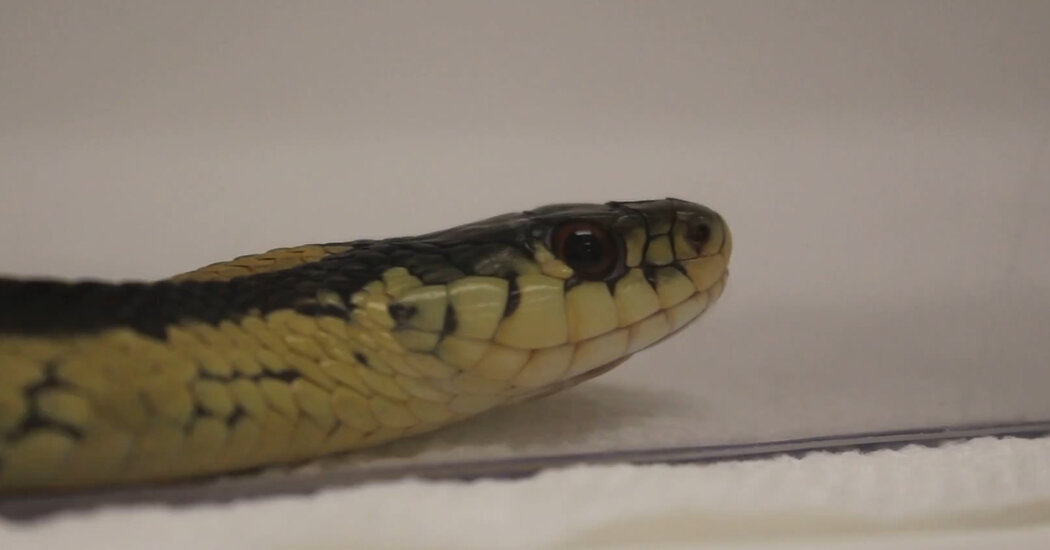These reptiles and their social networks are understudied, according to researchers applying scents to different snakes to assess their behavior.
Say the words “animal self-recognition,” and many scientists will think of chimpanzees, crows and elephants.
For the first time, researchers — employing an innovative twist on the mirror test — have found evidence that garter snakes can distinguish themselves from others, using not sight but scent.
“Reptiles are massively understudied,” said Noam Miller, a comparative psychologist at Wilfrid Laurier University in Ontario, Canada, and an author of the paper, published on Wednesday in the journal Proceedings of the Royal Society B. “There’s a bias out there that they’re these boring, not very cognitive animals, and that’s completely wrong. That’s one of the reasons why we got very interested in studying them and showing the complex cognitive things they can do.”
One traditional sign of animal cognition has generally been the mirror test, Dr. Miller said, or whether an animal can learn to recognize itself in a reflective surface, a trait thought to be a proxy for more sophisticated intelligence. Pioneered by primate researchers in the 1970s, the test typically involves marking an animal with paint somewhere that is visible only in the mirror and waiting to see if it investigates the change.
Similar tests have since been done with a range of species: elephants (passed), pandas (failed), roosters (passed) and even fish like the cleaner wrasse (passed).
But the mirror test is geared toward animals that are primarily visual. Many species — such as snakes — rely primarily on their sense of smell, Dr. Miller said. In 2017, researchers devised an olfactory version of the test for dogs. (They passed.)
